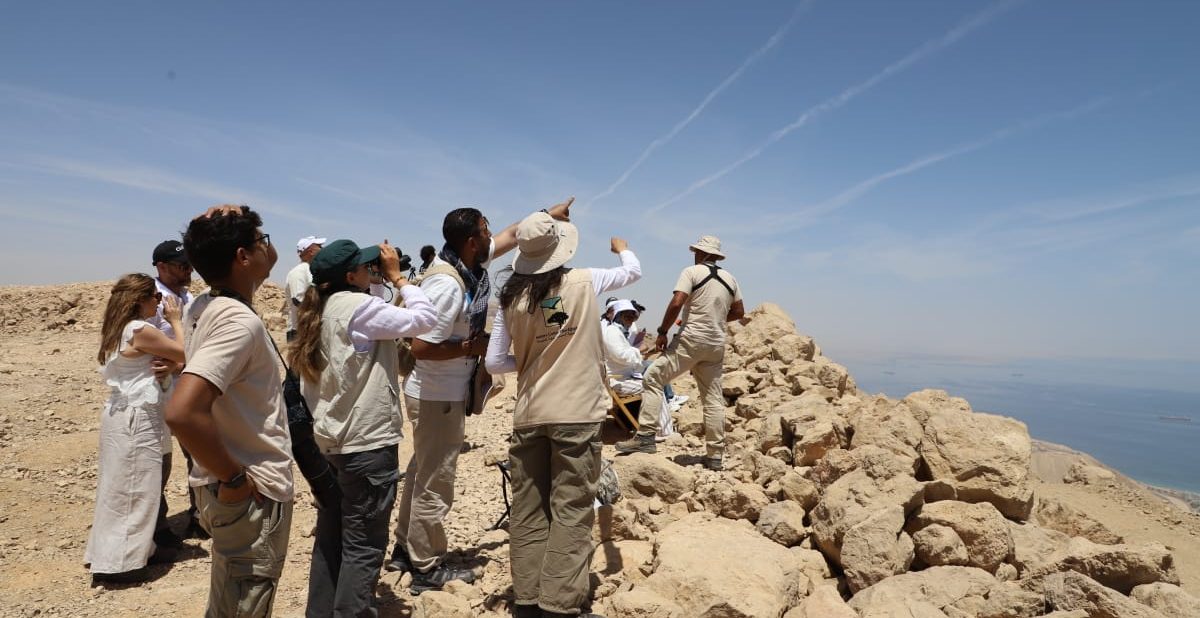Egypt’s bird conservation efforts have come a long way, demonstrating remarkable progress since the early 2000s in protecting migratory species that traverse its critical flyways.
In the 2025 migratory season alone, the Galala Bird Observatory observed, identified, and documented an astounding 354,571 migratory birds in Egypt, spanning 34 species, including 90 percent of the global population of Steppe Eagles and over half of the Levant Sparrowhawks.
The country’s strategic location along the Rift Valley/Red Sea flyway, the second most important migratory route for soaring birds worldwide, sees over 1.5 million birds of 37 species passing through, including five globally threatened species.
To safeguard these avian travelers, Egypt has implemented a series of ambitious conservation initiatives.
A central element in this conservation framework is the Galala Bird Observatory, situated at 700 meters elevation on Galala Mountain near the Red Sea coast. The site offers exceptional conditions for observing millions of migrating birds each spring and autumn, including endangered species like the Egyptian vulture. Since its establishment in 2022, the observatory has become a critical monitoring station.
In 2022 alone, the multinational team running the observatory recorded over 377,000 birds, including 1,215 Egyptian vultures, 218,474 Steppe Buzzards, and thousands of other raptors, making it one of the best bird monitoring sites in Egypt and North Africa. The observatory’s high altitude and mild weather enable close-up views and suitable bird photography opportunities, attracting both researchers and birdwatching tourists.
The observatory is supported by a record-breaking donation from the Global Birdfair community, an annual celebration of birds, contributing real-time data to BirdLife International’s network, informing conservation strategies across Europe, Asia, and Africa.
On 11 May 2025, Egypt introduced new measures through a partnership between the Ministry of Environment, the Egyptian Society for Nature Conservation, and the UK’s Global Birdfair to protect migratory birds and integrate eco-tourism into the country’s biodiversity strategy.
The collaboration builds on Egypt’s longstanding environmental leadership, rooted in governance efforts launched in 1983 and strengthened by hosting the United Nations Convention on Biological Diversity in 2014. As part of the initiative, a mural featuring migratory bird species will be installed at the Galala Bird Observatory, symbolizing the country’s continued commitment to biodiversity conservation.
Other initiatives include the enforcement of a hunting ban at key sites like Lake Nasser, a crucial stopover and wintering habitat for waterbirds such as the Common Teal, Northern Pintail, and Great White Pelican. The ban, initiated in 2023, addresses the threats posed by unsustainable hunting practices and is complemented by ongoing efforts to promote birdwatching and eco-tourism as sustainable alternatives for local livelihoods.
Practical conservation steps include developing birdwatching sites, such as rehabilitated oxidation ponds in Sharm El-Sheikh, and partnerships with tourism operators to promote birdwatching as part of eco-tourism itineraries.
Egypt’s commitment to biodiversity is also embedded in its legal framework, with strict protections under Law 4/1994, amended by Law 9/2009, safeguarding all native birds and bats, which play vital roles in pest control and maintaining ecosystem balance. The country has further demonstrated leadership by pioneering mitigation strategies to reduce bird collisions with wind turbines and power lines.
These include a Power Purchase Agreement that dedicates funds to bird monitoring, carcass surveys, and capacity building within the renewable energy sector. In recognition of these efforts, Egypt received the African-Eurasian Migratory Waterbird Agreement (AEWA) Conservation Award in 2019 for its work protecting birds along the Afro-Eurasian flyway.
According to Khaled El-Noubi, President of the Egyptian Society for Nature Conservation, such efforts showcase Egypt’s potential as a destination for eco-tourism, particularly birdwatching, which is gaining popularity worldwide.
With continued collaboration between the government, researchers, and local communities, the government emphasizes its commitment to a broader strategy to raise public awareness and support for nature conservation while promoting sustainable tourism that benefits local communities.







Comments (0)